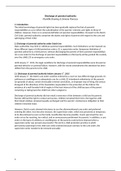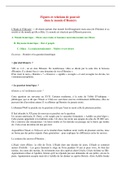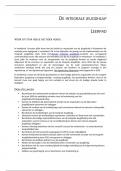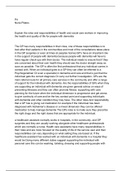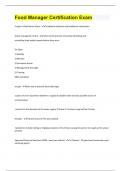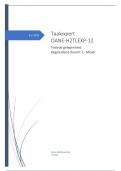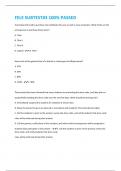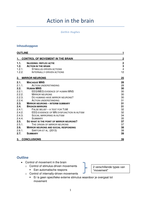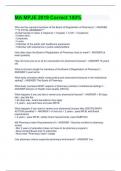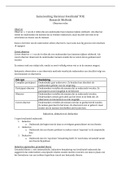Discharge of parental authority
Mariëlle Bruning & Simona Florescu
1. Introduction
The initial terminology of parental rights has been gradually replaced by that of parental
responsibilities so as to reflect the subordination of the parents’ interests and rights to those of
children. However, there is no universal definition of parental responsibilities. Pursuant to the Dutch
Civil Code, parental authority comprises the duties and rights of parents with regard to the care and
upbringing of their child.
2. Discharge of parental authority under Dutch law
State authorities may limit or withdraw parental responsibilities. Such limitations can be imposed via
three different types of child protection orders: (1) a supervision order (temporary limitation of
parental authority to a third person, without discharging the parents of their parental responsibility);
(2) a care order for the discharge of parental responsibilities (a third party will be granted the custody
over the child); (3) an emergency care order.
Until January 1st, 2015, the legal conditions for discharge of parental responsibilities were focused on
parental behavior or parental failure. However, with the recent amendments the attention has been
shifted from the parents to the child.
2.1 Discharge of parental authority before January 1st, 2015
Until January 1st, the Dutch care order could be ordered by a court on two different legal grounds: (1)
unfitness or unwillingness to adequately care for a child; (2) intentional misbehavior of the parents
(on grounds of abuse, certain irrevocable criminal convictions, an improper way of living, the serious
disregard of the directions of the foundation responsible for the protection of the child or the
existence of a well-founded risk of neglect of the best interest of the child because of the parent
reclaiming or taking back the child from other caregivers).
Discharge of parental authority did not entail a severance of ties between a child and its parents.
Parents still had the right to contact and access, children remained their heirs, the legal ties with
their blood relatives remained equally unchanged and the parents’ maintenance obligation to their
children remained intact.
However, Dutch courts showed reluctance to use the aforementioned care order and preferred
ordering the other, less intrusive measure, the supervision order, which was perceived as temporary,
to be discontinued as soon as the family reunification become possible. Courts perceived the care
order as too far-reaching, too radical, and an unnecessary punishment for parents. In addition, a care
order on the basis of unfitness or unwillingness of the parents could only be imposed when a
supervision order was proved unsuccessful. This led to a child protection practice in which
permanency planning for the child was rarely ordered (because contrary to the care order, the
supervision order needed to be renewed annually).
1
Mariëlle Bruning & Simona Florescu
1. Introduction
The initial terminology of parental rights has been gradually replaced by that of parental
responsibilities so as to reflect the subordination of the parents’ interests and rights to those of
children. However, there is no universal definition of parental responsibilities. Pursuant to the Dutch
Civil Code, parental authority comprises the duties and rights of parents with regard to the care and
upbringing of their child.
2. Discharge of parental authority under Dutch law
State authorities may limit or withdraw parental responsibilities. Such limitations can be imposed via
three different types of child protection orders: (1) a supervision order (temporary limitation of
parental authority to a third person, without discharging the parents of their parental responsibility);
(2) a care order for the discharge of parental responsibilities (a third party will be granted the custody
over the child); (3) an emergency care order.
Until January 1st, 2015, the legal conditions for discharge of parental responsibilities were focused on
parental behavior or parental failure. However, with the recent amendments the attention has been
shifted from the parents to the child.
2.1 Discharge of parental authority before January 1st, 2015
Until January 1st, the Dutch care order could be ordered by a court on two different legal grounds: (1)
unfitness or unwillingness to adequately care for a child; (2) intentional misbehavior of the parents
(on grounds of abuse, certain irrevocable criminal convictions, an improper way of living, the serious
disregard of the directions of the foundation responsible for the protection of the child or the
existence of a well-founded risk of neglect of the best interest of the child because of the parent
reclaiming or taking back the child from other caregivers).
Discharge of parental authority did not entail a severance of ties between a child and its parents.
Parents still had the right to contact and access, children remained their heirs, the legal ties with
their blood relatives remained equally unchanged and the parents’ maintenance obligation to their
children remained intact.
However, Dutch courts showed reluctance to use the aforementioned care order and preferred
ordering the other, less intrusive measure, the supervision order, which was perceived as temporary,
to be discontinued as soon as the family reunification become possible. Courts perceived the care
order as too far-reaching, too radical, and an unnecessary punishment for parents. In addition, a care
order on the basis of unfitness or unwillingness of the parents could only be imposed when a
supervision order was proved unsuccessful. This led to a child protection practice in which
permanency planning for the child was rarely ordered (because contrary to the care order, the
supervision order needed to be renewed annually).
1

